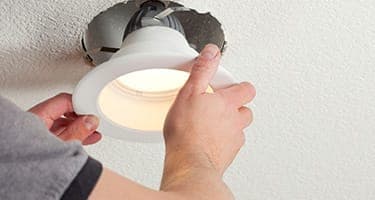Logistics, the intricate web of processes that ensures the efficient flow of goods, services, and information, is a vital component of modern society. From supply chains in multinational corporations to the movement of resources within local communities, logistics plays a pivotal role in determining the success or failure of various endeavors. One area where the impact of logistics often goes unnoticed is in the operations of local authorities. The question is whether poor logistics could be held accountable for local authorities failing to meet their targets and deliver on promises to their constituents. The Crucial Role of Logistics Before delving into the potential impact of poor logistics on local authorities’ performance, it’s essential to understand the significance of logistics in various sectors. Logistics encompasses coordinating resources, materials, personnel, and information to ensure that tasks are executed efficiently, effectively, and on time. This is particularly critical in time-critical logistics, where delays can result in severe consequences, such as missed deadlines, financial losses, and even public safety risks. Logistics involves a wide range of activities in the context of local authorities, including waste management, transportation infrastructure, emergency services, public health initiatives, and more. When these operations run smoothly, they contribute to a well-functioning community where citizens enjoy a high quality of life. However, the repercussions can be felt throughout the community when logistics fail. The Impact of Poor Logistics on Local Authorities Local authorities are at the heart of providing essential services and maintaining the well-being of their communities. The effective functioning of local government is crucial for citizens’ quality of life, economic development, and overall societal progress. Poor logistics can significantly hinder local authorities’ ability to fulfill their responsibilities, resulting in negative consequences. Missed Targets and Deadlines One of the most immediate impacts of poor logistics on local authorities is the failure to meet targets and deadlines. Whether it’s a construction project, implementing public services, or the execution of community events, timely delivery is essential. Delays caused by logistical inefficiencies can lead to project derailment, undermining the authority’s credibility and potentially incurring financial penalties. Research: According to a study conducted by the Project Management Institute (PMI) in 2020, poor project management practices, including inadequate logistics planning, resulted in 11.4% of projects not meeting their original goals and deadlines. This demonstrates the direct correlation between logistical shortcomings and missed targets. Financial Implications Inefficient logistics can have a direct impact on the financial health of local authorities. Delays, disruptions, and resource mismanagement can lead to increased costs. Extra expenditures might be required to cover overtime wages, rush deliveries, or rectify errors that could have been avoided with better logistics planning. Research: A report published by the Chartered Institute of Logistics and Transport (CILT) highlights that inefficient logistics can account for up to 30% of operating costs for local authorities. This strains budgets and limits the allocation of funds to other critical projects and services. Public Dissatisfaction The smooth operation of public services is an expectation that citizens hold for their local authorities. When logistics fail and services like waste collection, public transportation, or health programs are disrupted, public dissatisfaction can escalate. Negative sentiment spreads rapidly through social media and community forums, tarnishing the authority’s reputation and eroding trust. Research: A survey by the Local Government Association (LGA) found that 78% of citizens considered the timely delivery of public services as an important factor in their overall satisfaction with local authorities—conversely, instances of poor logistics and service disruptions directly correlated with decreased public approval ratings. Emergency Response Inefficiency Local authorities are responsible for managing emergencies and disasters effectively. In such critical situations, time-critical logistics are of paramount importance. Delays in mobilizing emergency services, providing resources, and coordinating responses can exacerbate the impact of emergencies, risking lives and prolonging recovery efforts. Research: The National Association of State EMS Officials (NASEMSO) emphasizes that seamless logistics are a cornerstone of successful emergency medical services. Timely response and resource allocation in emergencies rely on efficient logistics systems to ensure that medical personnel, equipment, and supplies reach the affected areas promptly. Reputational Damage A consistent pattern of logistical failures can lead to lasting reputational damage for local authorities. A negative public image makes garner support from constituents, stakeholders, and funding sources challenging. Rebuilding a damaged reputation requires substantial efforts and resources that could be better allocated to actual service delivery. Research: A case study analyzing the aftermath of a series of logistical failures in waste management within a local authority, conducted by the Institute of Public Administration and Management, highlighted that the authority’s reputation took several years to recover, even after addressing the logistical issues. The Complexity of Local Authority Logistics Local authorities operate in complex environments to manage diverse services, resources, and stakeholders. Effective logistics requires coordinating multiple moving parts, such as procurement, transportation, personnel management, and communication. For instance, consider waste management logistics. Local authorities must arrange garbage collection routes, allocate personnel and equipment, and ensure that waste disposal meets environmental regulations. Even a minor breakdown in these components can disrupt the entire process, leading to missed collections and unsightly neighborhoods. Similarly, transportation infrastructure projects involve intricate logistics. From securing permits and materials to coordinating with contractors and managing road closures, every step requires careful planning and execution. A failure at any point in this chain can lead to delays, cost overruns, and inconvenience for the public. Addressing the Challenge Improving logistics within local authorities requires a multifaceted approach: Technology Integration Advanced technologies like GPS tracking, real-time monitoring, and data analytics can enhance visibility and control over logistics processes. This empowers authorities to identify bottlenecks, predict potential issues, and make informed decisions. Collaborative Partnerships Engaging in partnerships with private sector companies that specialize in logistics can provide local authorities with access to expertise, resources, and technologies that improve efficiency. Skill Development Investing in training and skill development for personnel involved in logistics can lead to more effective execution of tasks. This includes training on new technologies and best practices in logistics management. Scenario Planning Developing contingency














